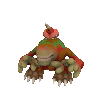Finally, Adsense for Games Is Here
18 months after its acquisition of Adscape and 12 months after it announced Adsense for Games, Google officially launched its game advertising network. Not surprisingly, the initial launch focuses on casual games, specifically flash-based games, which have experienced tremendous growth over the past two years. User traffic to Miniclip, addictinggames, Kongregate, and many other flash-based gaming sites has been exploding. Mochi Media, a game advertising company focusing on flash-based games, has lined up several strong partners like Gaia, Zynga, and Cyworld U.S., received strong support from independent developers, and experienced strong growth in reach (60 million gamers) and revenue. Interestingly enough, Google has chosen to collaborate with Mochi at launch and gain access to its global game inventory. The ad formats will include pre-roll, interstitial, and post-roll video ads as well as text and contextual ads. Google will split revenue, based on cost-per-impression or cost-per-click metrics, with developers and partners in the network.
Today's launch focuses on casual games. It should be welcome news to independent Flash game developers as Google has the biggest online ad network and great lineup of advertisers.
Google has always said it's still interested in in-game advertising in core PC and console games. In fact, Adscape owned several technology patents, including Real World/Virtual World Gateway (RVG), which enables two-way text, audio and video communication. RVG can dynamically serve advertising into the games and allows gamers to visit related Web sites to download and purchase items. After the acquisition, Google also filed an additional patent for behavioral targeting around gaming content, which wasn't well received by the gamers. It's not clear how Google plans to leverage the AdScape technologies and assets. Since Google's acquisition, many of the original members of the AdScape team, including Bernie Stoler, Eva Woo, etc. have left Google. Google is rumored to be in discussion with Sony regarding the PS3 platform. If it took 18 months for Google to take this first step, which should have been an easy step, God knows how long it will take before the company launches its IGA network for PC and console platforms. Google might have huge ambitions for gaming and could be trying hard to tie all of its gaming related efforts together, including the recently launched Google Lively virtual worlds, but from an outsider's point of view, it seems Google has become one of those big sluggish companies that are struggling to venture into new market. In the meantime, smaller and more agile companies like IGA Worldwide and Doublefusion are moving quickly to lock up with major publishers and expand their network and inventory...
Today's launch focuses on casual games. It should be welcome news to independent Flash game developers as Google has the biggest online ad network and great lineup of advertisers.
Google has always said it's still interested in in-game advertising in core PC and console games. In fact, Adscape owned several technology patents, including Real World/Virtual World Gateway (RVG), which enables two-way text, audio and video communication. RVG can dynamically serve advertising into the games and allows gamers to visit related Web sites to download and purchase items. After the acquisition, Google also filed an additional patent for behavioral targeting around gaming content, which wasn't well received by the gamers. It's not clear how Google plans to leverage the AdScape technologies and assets. Since Google's acquisition, many of the original members of the AdScape team, including Bernie Stoler, Eva Woo, etc. have left Google. Google is rumored to be in discussion with Sony regarding the PS3 platform. If it took 18 months for Google to take this first step, which should have been an easy step, God knows how long it will take before the company launches its IGA network for PC and console platforms. Google might have huge ambitions for gaming and could be trying hard to tie all of its gaming related efforts together, including the recently launched Google Lively virtual worlds, but from an outsider's point of view, it seems Google has become one of those big sluggish companies that are struggling to venture into new market. In the meantime, smaller and more agile companies like IGA Worldwide and Doublefusion are moving quickly to lock up with major publishers and expand their network and inventory...


0 Comments:
Post a Comment
<< Home